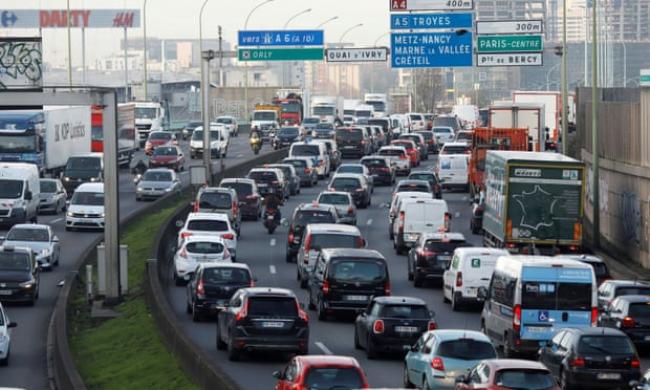Articles Menu

Mar. 3, 2020
Commuters in Europe are still choosing their cars over public transport despite enduring ever longer journey times into city centres owing to traffic congestion, the EU’s spending watchdog has found.
Six years after Brussels announced a step-change in urban transport and provided more than €16.3bn (£14bn) in funding, the European Court of Auditors (ECA) said it had found no significant trend in favour of using public transport or bicycles.
“Persuading citizens to leave the comfort of their cars for other forms of transport is often a challenge,” the ECA said in its report, Sustainable Urban Mobility in the EU. “Although cities have put in place a range of initiatives to expand the quality and quantity of public transport, there has been no significant reduction in private car usage.”
The ECA called for greater political leadership after it visited eight cities in Germany, Spain, Poland and Italy, surveyed a further 88 cities and assessed 15 projects supported by the EU.
The auditors said it was still often quicker to travel to city centres by car despite the growing congestion, resulting in rising greenhouse gas emissions.
However, the report found that the areas of Madrid, Barcelona and Hamburg that could be reached by car within 30 minutes during peak time were “far smaller” in 2019 than in 2012, a situation echoed to a lesser degree in Palermo, Warsaw, Naples and Leipzig.
A senior ECA auditor said: “We found no evidence of a clear trend towards more sustainable modes of transport. In addition, greenhouse gas emissions due to transport continued to increase and congestion deteriorated in most cities analysed.”
Through the European Structural and Investment Fund, the EU has provided €16.3bn between 2014 and 2020 to change the way people move in cities. An extra €200m was given to larger cities by the Connecting Europe Facility.
The auditors’ analysis found that the money was taken but there was “limited take-up” on European commission guidance on how to spend it. Money was being wasted on ill-fated projects, while city plans often lacked coherence.
Few cities had established congestion charges, there was a lack of commitment to building bike lanes, and public transport systems were found to be under financial pressure, with costs being covered to a varying extent by charging for tickets.
In Naples, the municipal transport company said ticket evasion in the city amounted to 33% of journeys, leaving it unable to invest in new buses. The average age of its 500 buses increased from 11.5 years at the start of 2013, to 13.4 years by November 2018. Fewer than 65% were available for daily use. In Palermo, the average bus was more than 12 years old and only 71% of the fleet was available for daily use.
In Poland, the report found parking penalties were lower than fines for not paying public transport fares. In Warsaw, cars were banned from the side of the road but it was still possible to park on the pavement.
A senior auditor said congestion cost the EU around €270bn a year and that funds provided by Brussels should be more tightly linked to plans to shift people out of their cars.
“Congestion also has a negative impact on economic growth,” the auditor said. “In addition, 96% of EU citizens living in urban areas are exposed to health-damaging levels of air pollutants, and the environmental cost of transport is estimated at several hundred billion euro per year.”
[Top photo: It is still often quicker to travel into city centres by car despite growing congestion. Photograph: Charles Platiau/Reuters]